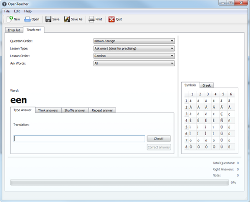As first thing i must say that I’ve never used this “line” of distributions, in the past when i wanted to use .rpm packages I used the Red Hat family Distributions, and then I moved to .deb distributions and Gentoo.
So It’s my first time with these 2 distributions, let’s see if Mageia has surpassed the “source distro”, or Mandriva it’s still leading in the Desktop.
A small intro of the 2 distributions (courtesy of Wikipedia)
Mageia is the name of a non-profit organization and Linux distribution. On September 18, 2010, a group of former Mandriva employees and community supporters announced that Mandriva Linux was being forked and a new, community-driven distribution would be created, called Mageia.
Mandriva S.A. is a publicly traded (symbol:MLMAN) Linux and open source software company with its headquarters in Paris, France and development center in Curitiba, Brazil. Mandriva, S.A. is the creator and maintainer of Mandriva Linux, describing itself as a “project initiator and a skills organizer in the Open Source arena”, and a founding member of the Desktop Linux Consortium.
Continue reading »


